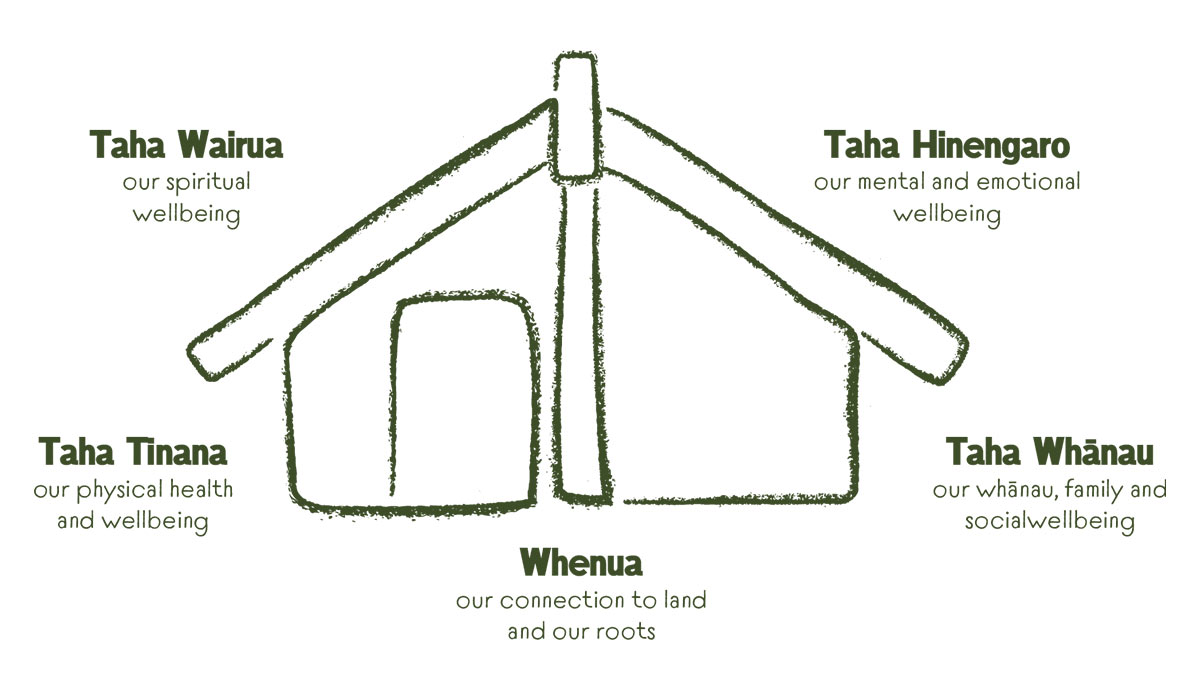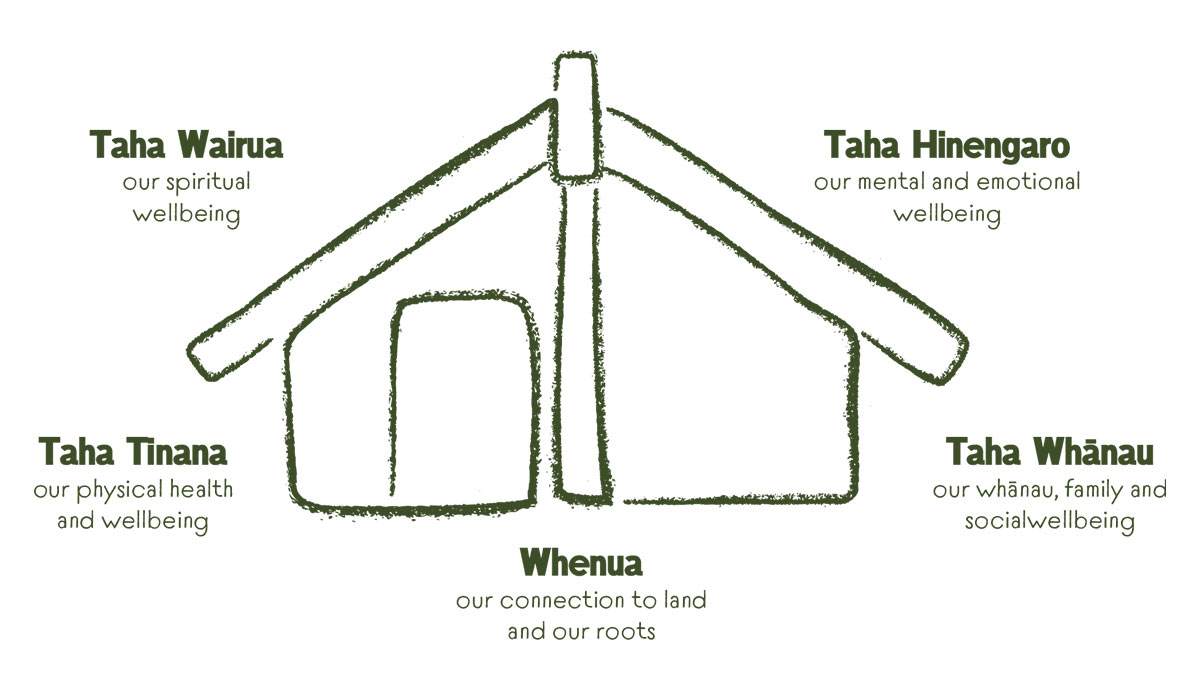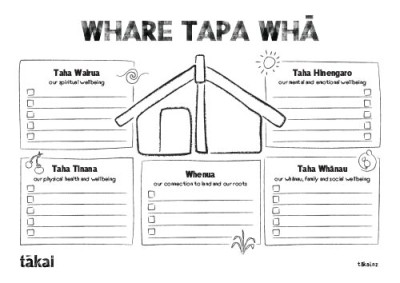
How Te Whare Tapa Whā supports wellbeing
Hauora is about nurturing our whole selves – our physical, mental and spiritual health, the strength of our whānau and our relationship with te taiao. The key is balance – all pou of Te Whare Tapa Whā need nurturing.
Hauora is way more than doing some exercise. Tā Mason Durie, a leading Aotearoa psychiatrist developed Te Whare Tapa Whā to show all the key parts of our hauora as the walls and foundations of a wharenui .
What Te Whare Tapa Whā looks and feels like
Taha tinana – our physical health and wellbeing. How our body grows, feels, moves and how we look after it.
Taha wairua – our spiritual wellbeing. Hope, faith and meaningful connection to the world around us and our whakapapa.
Taha hinengaro – our mental and emotional wellbeing. All that we feel in our heart and our head, our thoughts and feelings.
Taha whānau – our whānau, family and social wellbeing. The people who matter to us and we feel connected to.
Whenua – our connection to land and our roots. Our physical, emotional and spiritual connection to the land, our place and te taiao .
Our hauora relies on all of these five hauora parts being kei te pai and well. When we are not well, think about which pou may need some attention and care.
Caring for our tinana
The way we choose to care for our tinana might be different to our friends and whānau, and that’s ka pai! Do what makes you harikoa and feel good.
Here’s some of the ways you might nurture your tinana, or new things to try:
- run around
- kanikani
- go for a bike ride
- grow kai
- collect kai
- play a sport.
Caring for our whenua
We are kaitiaki of our whenua, meaning it’s our job to care for our whenua in the same way it cares for us.
Here’s some of the ways we can nurture our whenua:
- go barefoot for a bit
- lie on Papatūānuku and up to look up to Ranginui
- pick up rubbish
- nurture your trees and plants
- spend time in nature and in the garden
- visit local historic places
- visit cemeteries where your ancestors are.
Caring for our hinengaro
Hinengaro might feel tricky to understand, but it’s really all about doing the sorts of things that refresh your mind and help you feel calm. Even when things feel stressful.
Here are some ways you can care for your hinengaro:
- create some routine around your days
- sing and play waiata
- do things that you enjoy – art, crafts, read books, kapa haka
- work on getting a good night’s moe (sleep)
- be aware of your emotions and how you’re feeling
- practice calming strategies like breathing exercises.
Nurturing our wairua
Tamariki are deeply connected with wairua , so if you need to look for their lead – play, be present and notice what’s around you. These are all ka pai ways to nurture your wairua.
Here are some other ideas to nurture your wairua:
- be clear about your values and include these in your everyday
- meditate, pray or practice giving gratitude
- spend time being still and mindful – puku breathing, yoga and body scans are some examples
- play with tamariki letting them lead the way
- use special whakataukī to guide you through the day or challenging times.
Looking after our whānau
There’s no doubt you’ll probably be doing loads of caring for your taha whānau, which is awesome! Sometimes we lean too heavily on one of our hauora pou though so it’s good to remember that balance is key – all pou need nurturing!
Here’s some ways to care for your whānau and also bolster your other hauora pou too:
- spend time with whānau outside
- gather and share kai
- talk to whānau about your whakapapa and learn your pepeha
- kōrero about your memories of whānau and special times together
- praise tamariki for holding your whānau values strong
- find quiet time as a whānau too – karakia for kai time, waiata oriori, read together.


 pdf 11 MB
pdf 11 MB





















